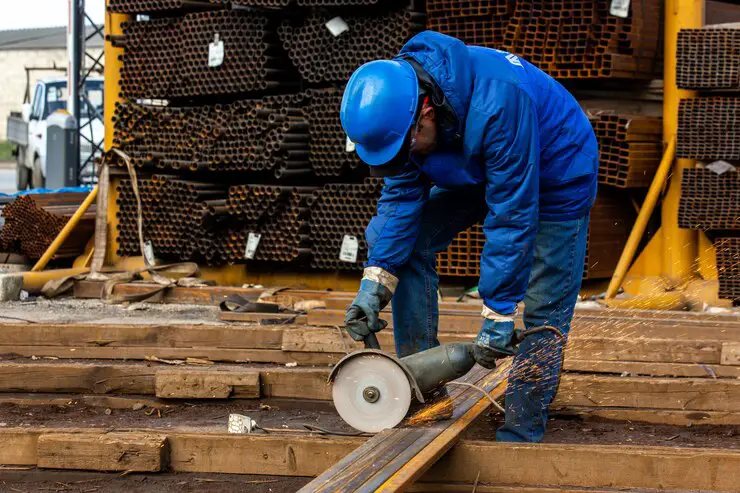As steel production becomes an ever-more frenetic industry, managing oil and grease efficiently becomes even more of a priority. Steel Mills in India or any other country are complex ecosystems where every drop counts towards not just bottom-line profitability but environmental sustainability as well. Here, we present ten actionable methods that will significantly enhance oil and grease conservation within steel mill settings, specifically the wire rod mill process. Embracing these strategies not only boosts productivity but also minimizes waste, contributing positively to the industry's ecological footprint. These strategies not only increase productivity but also minimize waste production, leading to lower ecological impact in the industry.
Optimize Lubrication Systems
Optimizing lubrication systems is essential to conserving oil and grease resources. For this, it utilizes precise equipment that dispenses exactly the amount of lubricant at scheduled intervals. This will decrease the wasteful consumption of resources and increase operational efficiencies at high-speed machinery such as the Wire Rod Mill. By doing so, optimizing not only saves resources but also ensures maximum operational efficiencies are reached simultaneously.
Regular Maintenance Checks
Maintenance checks play an integral part in oil and grease conservation initiatives. Rectifying leaks quickly not only minimizes wastage but also ensures seamless operation within Steel Mill environments, prolonging equipment lifespan while decreasing overall lubricant usage. Regular inspections and maintenance schedules help identify any potential issues early, thus avoiding expensive breakdowns while conserving resources over time.
Invest in High-Quality Lubricants
High-quality lubricants tailored specifically to the Wire Rod Mill in India or elsewhere can bring considerable conservation advantages, often necessitating smaller amounts for optimal performance – leading to significant savings on overall consumption. Prioritizing quality over quantity will extend equipment longevity while decreasing the environmental footprint associated with its usage, creating long-term sustainability benefits and saving the Steel Mill time and money over the course of its operation.

Utilize Automated Lubrication Systems
Automated lubrication systems have revolutionized oil and grease conservation efforts. By dispensing precise amounts of lubricants automatically, these systems alleviate human error while eliminating over application – particularly useful in critical areas of Steel Mills for efficient lubrication without wastage.
Train Personnel on Best Practices
Empowering employees with knowledge regarding best practices for oil and grease management creates a culture of conservation in any Wire Rod Mill. Training programs focusing on proper lubrication techniques as well as leak detection equip employees to actively contribute towards conservation efforts, thus improving overall efficiency while decreasing environmental impact.
Monitor Usage with Advanced Technologies
Leveraging cutting-edge technologies such as IoT sensors and data analytics enables real-time tracking of oil and grease usage at Steel Mills. Taking a proactive approach allows quick interventions as well as adjustments in order to optimize consumption patterns across the mill, eventually leading to informed decision-making regarding resource allocation.
Implement Waste Oil Recycling Programs
Establishing waste oil recycling programs is an environmentally sustainable solution to effectively reuse used lubricants. Recycling preserves valuable resources while mitigating any adverse environmental impact associated with oil disposal. Such programs foster circularity and responsible resource management within Steel Mills – not only can waste oil recycling reduce their carbon footprint, but it can contribute towards creating an eco-friendly manufacturing process as well!
Conduct Energy Audits Regularly
Regular energy audits should encompass not only electricity use but also efficient use of lubricants within a Steel Mill. Spotting areas of excess consumption through audits and taking corrective steps contribute significantly towards oil and grease conservation; such audits act as proactive steps that enhance resource utilization while decreasing waste.
Opt for Dry Lubrication Alternatives
Exploring dry lubrication alternatives within a Wire Rod Mill presents an opportunity for oil and grease conservation. Dry lubricants offer viable replacements to traditional oil-based lubricants while cutting overall consumption; adopting such alternatives aligns with sustainability goals while optimizing resource usage.
Collaborate with Suppliers for Sustainable Solutions
Engaging lubricant suppliers who prioritize sustainable practices helps create collaborative efforts toward conservation. Partnering with suppliers that prioritize eco-friendly solutions may result in optimizing oil as well as grease product usage.
Endnotes On Steel Mills Lubrication
Conserving oil and grease at Steel Mills, specifically those operating Wire Rod Mills, requires an integrated approach. By adopting the strategies outlined herein, mills can not only lower their environmental footprint but also enhance operational efficiency as well as profitability. Also, the adoption of the culture of conservation is supported by technological developments and informed decision-making – leading to a sustainable future in steel manufacturing industries worldwide.





